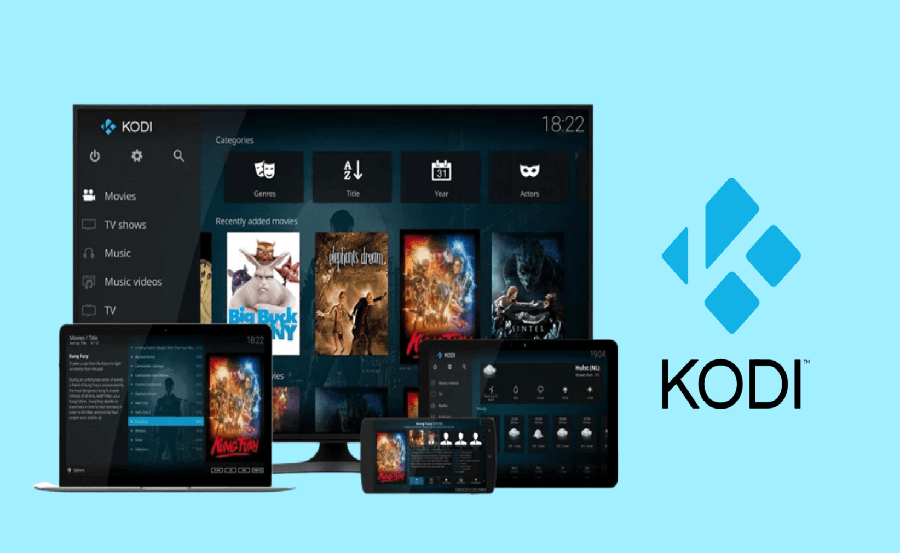In today’s fast-evolving digital landscape, the way we consume media has changed dramatically. With the rise of streaming technologies, viewers now have more options than ever to access their favorite content—whether it be television shows, movies, or live broadcasts. One of the significant players in this transformation is Kodi IPTV, which, alongside Rapid IPTV, is touted as the pinnacle of IPTV subscription services. This article explores how Kodi IPTV is reshaping traditional media consumption and why Rapid IPTV stands out as a top HD IPTV subscription choice.
Understanding Kodi IPTV
To better grasp the influence of Kodi IPTV, it’s essential to understand what it entails. At its core, Kodi is a free and open-source media player software application. Originally envisioned as a homebrew app for Microsoft’s Xbox console, it’s now available on a plethora of operating systems and devices.
What sets Kodi apart is its ability to integrate IPTV services. Users can access a wide array of multimedia content, bypassing traditional broadcast limitations. This has redefined how viewers engage with television and film.
Quick Tip:
For the best UK content, choose UK IPTV and enjoy seamless streaming on your favorite devices.
The Mechanics of Kodi IPTV
When discussing Kodi IPTV, it’s worth explaining how it functions. Essentially, IPTV uses Internet protocol networks to deliver television services. Unlike downloaded media, IPTV streams media directly from the source. This method allows for seamless viewing experiences without the hassle of dealing with large file downloads.
Viewers today demand quick, high-quality access to content. IPTV over Kodi delivers just that by providing customizable solutions that align with modern multimedia consumption habits.
Features of Kodi IPTV
- On-demand content accessibility
- Interactive TV features
- Customization options for user preferences
Benefits and Drawbacks
While Kodi IPTV brings myriad benefits, such as convenience and user control over content, it also poses challenges for traditional media. The decentralized distribution model can complicate content rights management and monetization.
The Shift from Traditional Media
Kodi IPTV’s impact is most evident in its influence on traditional broadcasting. As more people switch to digital solutions, there is a noticeable decline in cable and satellite subscription numbers. The flexibility of IPTV services provides immense allure for modern consumers.
Major Differences
The differences between traditional media and IPTV are stark. While legacy media asks for appointment viewing, IPTV allows convenience through anytime access. Additionally, the variety offered through IPTV platforms tends to surpass that of conventional cable or satellite services.
Driving Forces Behind the Shift
- Shifts in consumer expectations
- Technological advancements
- Cost-efficiency
- Tailored content recommendations
The flexibility and affordability of IPTV clearly have a significant influence on the increasing abandonment of traditional media forms.
Why Rapid IPTV Stands Out
Among the growing number of IPTV service providers, Rapid IPTV is emerging as the leader, offering unparalleled streaming quality and content variety. It is seen as the best IPTV subscription due to its consistent service and extensive library of content.
Key Features of Rapid IPTV
The success of Rapid IPTV can be attributed to several standout features.
- Extensive library of HD content
- High-performance streaming without buffering
- User-friendly interface with easy navigation
- Multi-device compatibility
User Experience
Customers rave about the flawless streaming experience that Rapid IPTV provides. Unlike other providers that struggle during peak times, Rapid IPTV ensures that viewers can enjoy their shows without interruptions, making it an essential part of modern viewing habits.
Considering Quality and Pricing
An important factor in choosing any service is the balance between cost and quality. Rapid IPTV has managed to excel in both, providing affordable options without compromising on content or service reliability.
Challenges Facing Traditional Media
With the dominance of services like Kodi and Rapid IPTV, traditional media is encountering a range of challenges. These include reduced ad revenue and the loss of viewer loyalty, which has historically been crucial for audience engagement.
Adapting to Change
To survive in this new era, traditional media must adapt by incorporating digital strategies. This may include adopting hybrid distribution models that combine traditional and digital broadcasts. The challenge lies in maintaining profitability while transitioning their core business models.
Strategies for Survival
- Investing in exclusive content
- Building partnerships with digital platforms
- Harnessing data analytics for audience insights
By embracing these strategies, traditional media can still play an important role in future content consumption landscapes.
Future of IPTV and Media Consumption
As we look toward the future, it’s clear IPTV services like those provided by Kodi and Rapid IPTV will continue to grow. The flexibility and personalization they offer strike a chord with an increasingly dynamic audience.
Technological Evolutions
With ongoing advancements in technology, the scope of IPTV services will broaden. Emerging areas such as virtual reality broadcasts or AI-curated content are likely next steps in this evolution.
Consumer Trends
Trend analyses suggest a move towards even more personalized streaming experiences, with greater control over content and viewing environments. In this evolving media landscape, services like Rapid IPTV are well-positioned to lead the charge.
Impact on Media Producers
Production companies will need to adapt to the changes by altering how they approach content creation and distribution. This could involve partnering with digital platforms or developing unique content with universal appeal.
Where Do We Go From Here?
As Kodi IPTV and other services continue to reshape our media landscape, the opportunities and challenges they pose for traditional media are multifaceted. Through adaptability and innovation, both digital and traditional platforms can thrive symbiotically.
Rapid IPTV, as a leading service provider, sets a shining example in this landscape, merging quality and convenience to meet future viewer needs. Staying attuned to these shifts will be essential for anyone with a stake in the media industry.
FAQs: Your IPTV Questions Answered

What exactly is Kodi IPTV?
Kodi IPTV combines the features of the Kodi media application with IPTV services, allowing users to stream a broad range of content through Internet protocol networks. This setup brings greater flexibility and offers viewers a customizable media experience.
Why is Rapid IPTV considered the best?
Rapid IPTV tops the list because of its reliability, diverse HD content library, and user-friendly interface. It offers superb streaming quality and consistently surpasses its competitors in delivering a buffer-free experience.
How does IPTV differ from traditional cable?
The key difference lies in content delivery. IPTV uses the internet to stream content, offering greater control over when and how to watch shows. Traditional cable often requires viewer commitment to predetermined schedules and a more limited content range.
Is IPTV more economical than cable?
Yes, IPTV services often offer flexible pricing models that are more budget-friendly than conventional cable packages, especially when considering the broader range of content and added features available with IPTV subscriptions.
Can traditional media survive the IPTV shift?
Traditional media can endure by integrating technology into their models, creating hybrid content distribution strategies, and offering unique programming to hold onto their audience base. Collaboration and adaptation are key to longevity.
For anyone looking to navigate this new media landscape, understanding the dynamics at play and making informed choices about media consumption is more crucial than ever.
The IPTV Revolution: Saying Farewell to Cable TV
